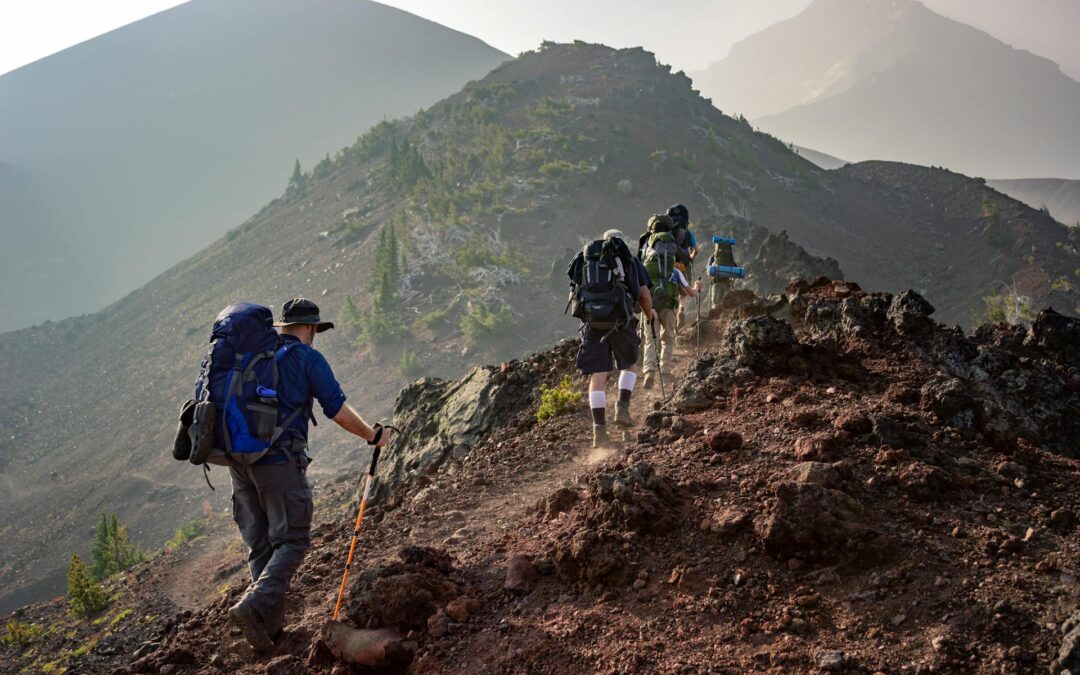Trekking is more than just a physical activity; it’s an experience that connects us with nature, tests our endurance, and rejuvenates our souls. Whether you’re a seasoned hiker or just starting out on your outdoor adventures, understanding trekking etiquette is essential for ensuring a safe, enjoyable, and sustainable experience for everyone involved. Here are some dos and don’ts to keep in mind for responsible hiking:
Do Respect Nature Nature is the reason we embark on treks in the first place, so it’s crucial to treat it with the utmost respect. Stay on marked trails to avoid trampling delicate vegetation, and refrain from picking flowers or disturbing wildlife. Remember, you’re a guest in their home.
Don’t Leave Trace The golden rule of trekking: leave no trace. Whatever you bring into the wilderness, take it back with you. This includes food wrappers, water bottles, and any other waste. Dispose of trash properly and, if necessary, pack out human waste following Leave No Trace principles.
Do Be Prepared Before setting off on any trek, make sure you’re adequately prepared. Research the trail you’ll be hiking, check the weather forecast, and pack essential gear such as a map, compass, first aid kit, water, and snacks. Being prepared not only enhances your safety but also minimizes the risk of emergencies.
Don’t Disturb Wildlife Wild animals are a part of the natural ecosystem, and disturbing them can have serious consequences. Keep a safe distance, avoid feeding them, and never approach or attempt to touch them. Admire wildlife from afar and let them go about their business undisturbed.
Do Yield to Others When encountering fellow hikers on the trail, practice courtesy and yield to those going uphill or moving faster than you. Step aside and allow them to pass safely. Additionally, be mindful of other trail users such as mountain bikers and horseback riders, and give them space to maneuver.
Don’t Make Excessive Noise One of the joys of trekking is the serenity of nature, so avoid making excessive noise that could disturb the peace. Keep conversations at a moderate volume, turn off loud music, and refrain from shouting or yelling. Let the sounds of birdsong and rustling leaves be your soundtrack.
Do Follow Local Regulations Every trekking destination has its own set of rules and regulations aimed at preserving the environment and ensuring visitor safety. Educate yourself about these regulations before your hike and abide by them diligently. This may include obtaining permits, respecting trail closures, or adhering to fire restrictions.
Don’t Damage the Environment Trekking involves traversing fragile ecosystems, so take care to minimize your impact. Avoid trampling vegetation, carving into trees, or disturbing natural formations. Stick to established trails and campsites, and refrain from building new fire rings or structures.
Do Practice Leave No Trace The Leave No Trace principles serve as a guiding philosophy for responsible outdoor recreation. These principles include: planning ahead and preparing, traveling and camping on durable surfaces, disposing of waste properly, leaving what you find, minimizing campfire impacts, respecting wildlife, and being considerate of other visitors. By following these guidelines, you can minimize your environmental footprint and help preserve wilderness areas for future generations.

